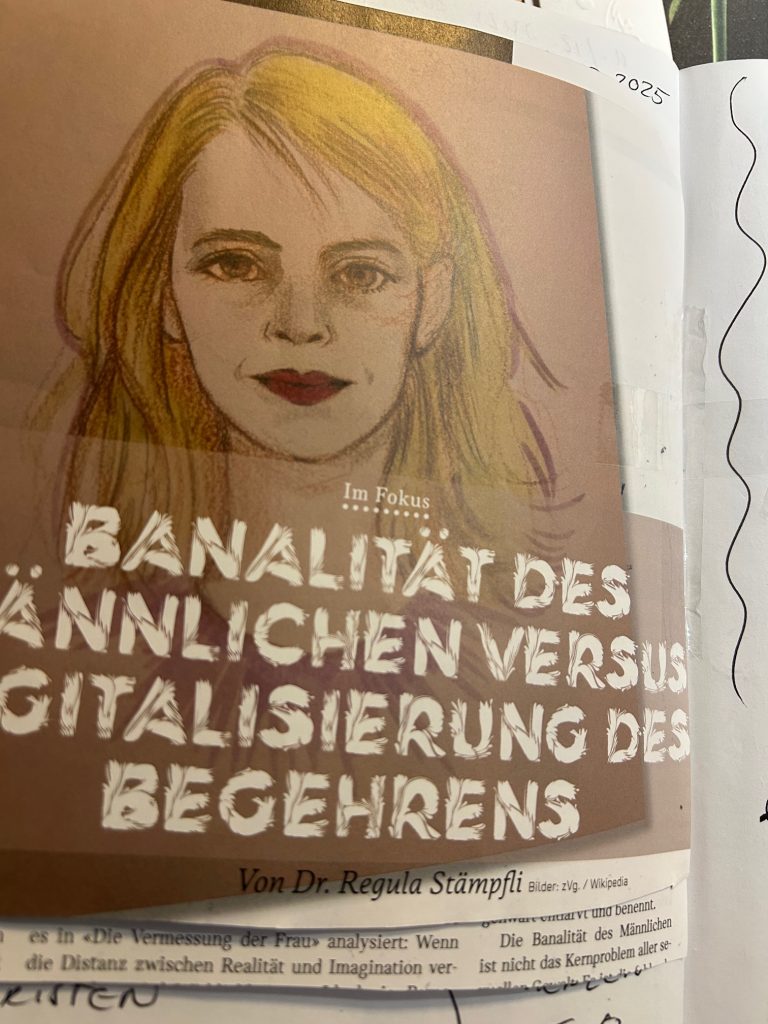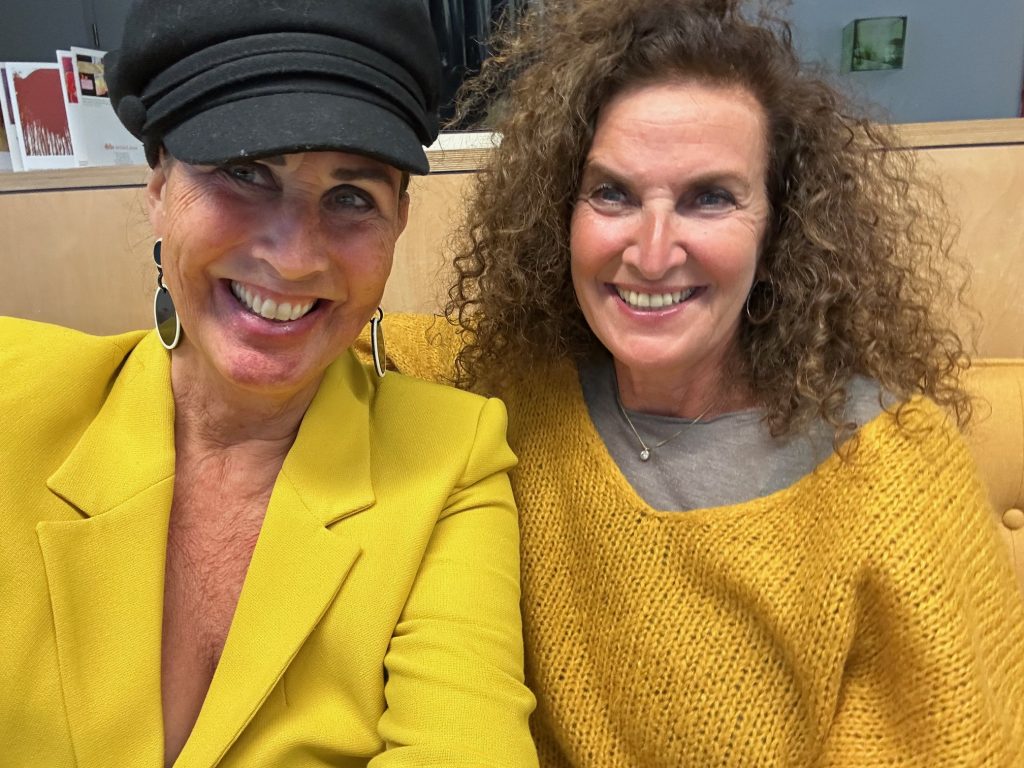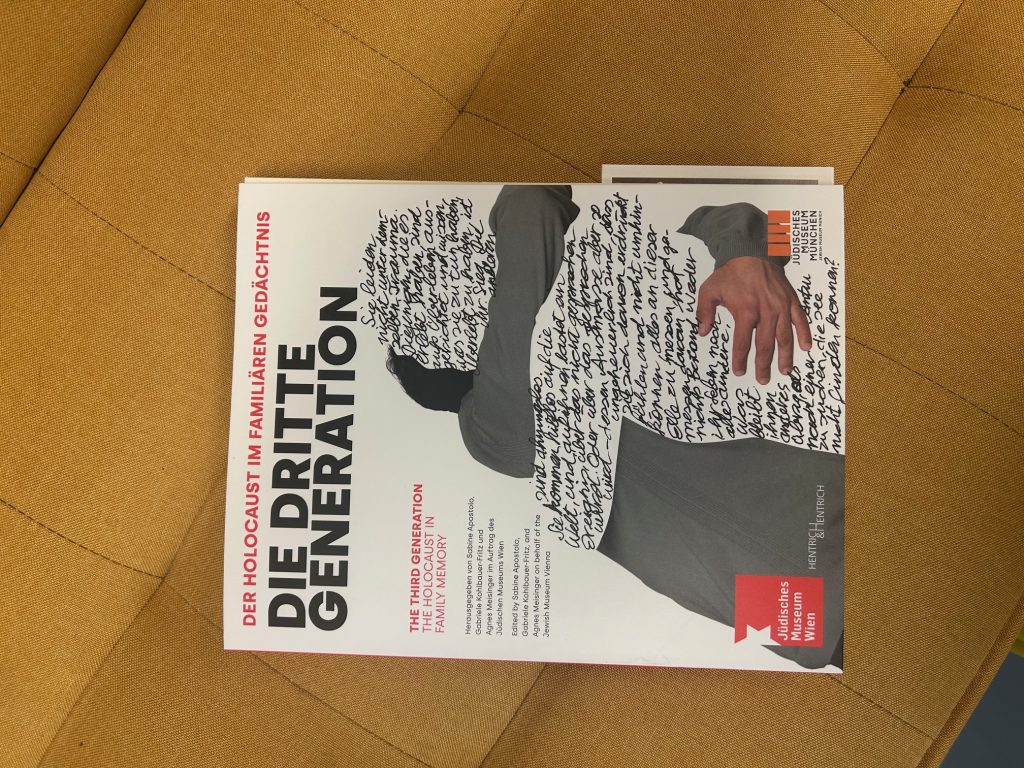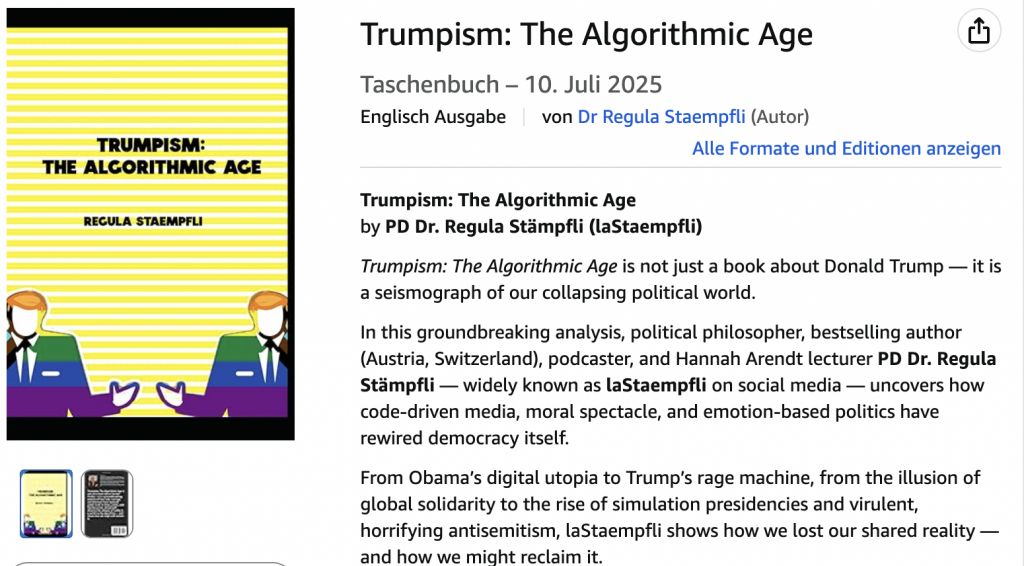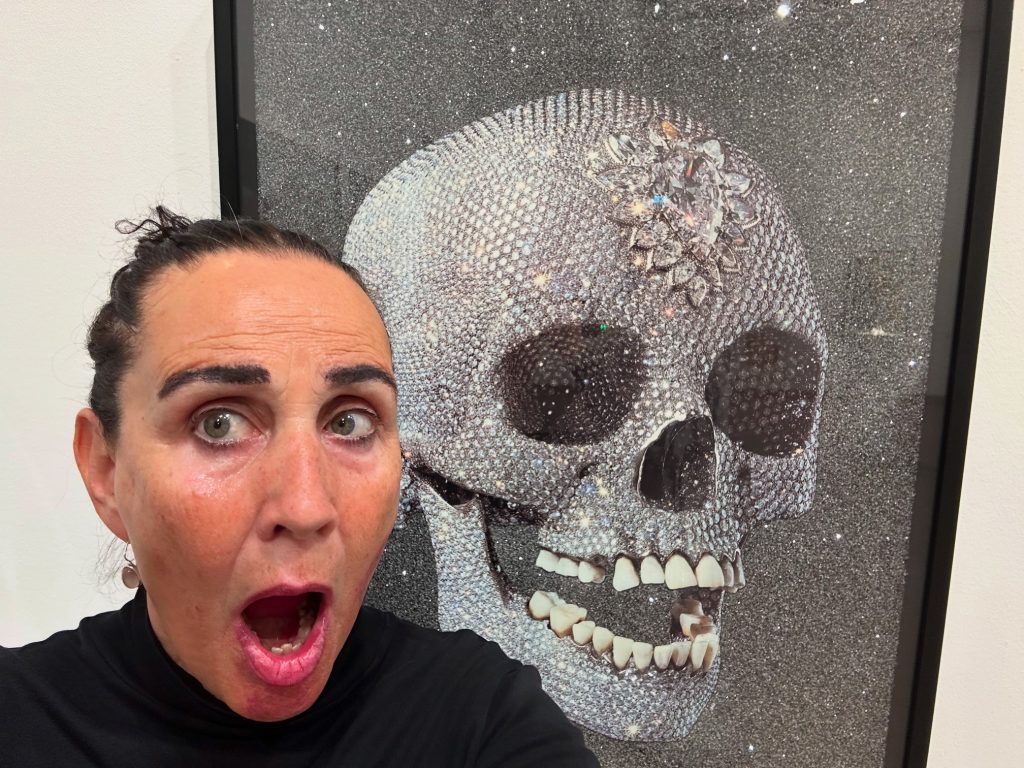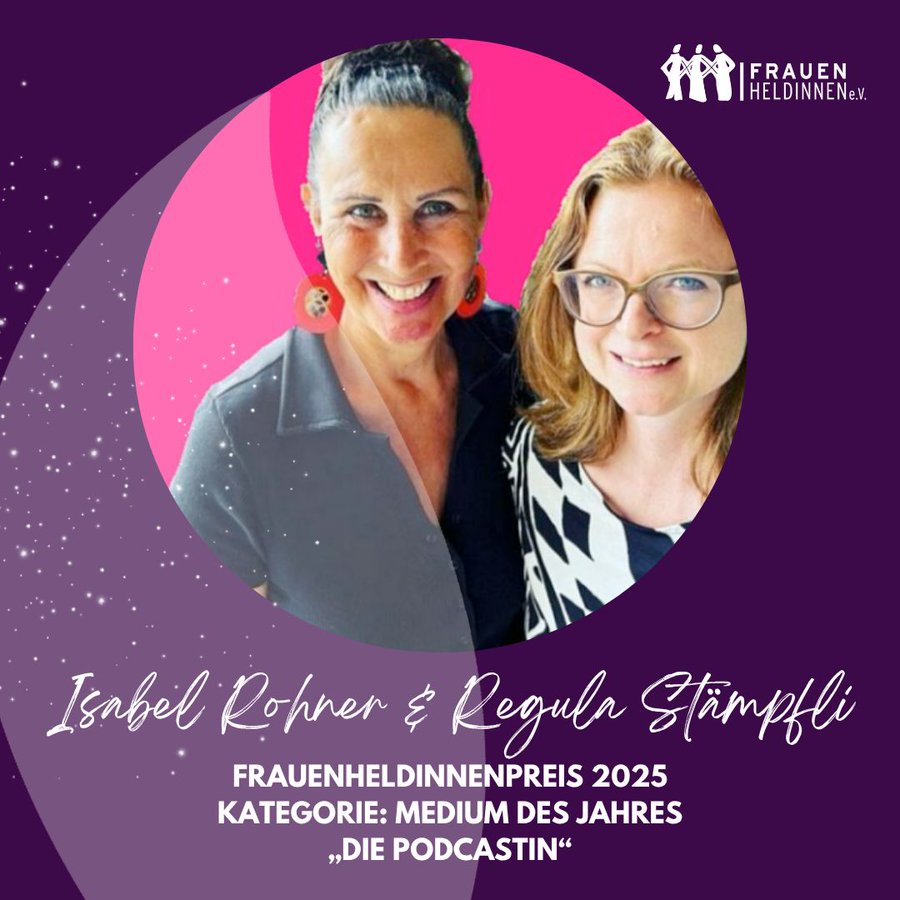
Anflug auf Ben Gourion im Dezember 2025 von Regula Stämpflis erster Pressereise, die aber nichts mit der Pressereise zu tun hat, die im taz-Artikel beschrieben ist. copyright laStaempfli 2025.
Seit dem 7. Oktober 2025 pflegt auch der deutsche Journalismus eine bedenkliche Vereinfachung höchst komplexer geopolitischer Sachlagen. Dabei wird gerne die „moralische Dringlichkeit“, über Fakten und Sachwissen gestellt.
Hier bringt die Politikwissenschaftlerin & Historikerin Regula Stämpfli als Beispiel einen Artikel der taz, siehe https://taz.de/Lobbyorganisation-Elnet/!6130001/ (Kurzversion hier, die Langversion ist auf www.regulastaempfli.eu zu finden.) Im Artikel der taz wird aus einer ganz normalen Pressereise eine jüdische Verschwörung konstruiert.
Es beginnt schon beim Titel: „Elnet lobbyiert für die Regierung Netanjahu. Über hundert deutsche Abgeordnete reisten mit dem Verein, der Kontakt zu Siedlern und Trump-Fans hat.“
Medias in res sind wir mitten im Bösen: Siedler, Trump und Netanjahu – fertig ist die deutsche Klischeemaschine gegen Israel schon in der Headline. Der taz Titel setzt den Ton als Urteil, es ist keine Reportage, keine Recherche, sondern ein Frame, der nur ein Ziel verfolgt: Die Diskreditierung einer ganz normalen Lobbyorganisation und von Israel.
Lobbies gibt es tonnenweise. Deutschland lobbyiert mit seinen Goethe-Instituten in der ganzen Welt für die deutsche Kultur. Damit war Deutschland übrigens sehr erfolgreich: Von Xi Jinping weiss man, dass er einer der größten Goethe-Fans ist, er hat nicht nur alle Werke übersetzen lassen, sondern die VR China hat auf Betreiben des kommunistischen Staatenlenkers die einzige Gesamtedition von Goethe in einer nicht-europäischen Sprache produzieren lassen. Alles über Goethe ist in China übersetzt, digitalisiert, archiviert, selbst der kleinste Fetzen Goethes Italienreise gibt es auf chinesisch. Vom Goethe-Institut als „politischen Netzwerk“ verwoben mit der „kommunistischen Führung in China“ zu raunen, käme aber wohl nicht einmal Donald Trump in den Sinn.
Bei Israel geht es aber immer um andere Maßstäbe. Im taz-Artikel gibt es keine Information, sondern Haltungsjournalismus. Mit „Trump-Fans“ und „Siedler“ wird die großzügige, vom israelischen Steuerzahler bezahlten Reise von den für ihren Geiz bekannten deutschen Journalisten („was, wir sollen dem Fahrer über 30 Euro für 7 Tage Servicefahrten von Hotel zur nächsten Destination zahlen?“) als rechtspopulistische Veranstaltung diskreditiert. Dieses Raunen ist im Artikel omnipräsent. So wird das Bestreben Israels, nach dem Krieg den deutschen Journalisten wieder das Reiseland im Nahen Osten nahe zu bringen, als rechtsextreme zionistische Meinungsmanipulation von den Journalisten diffamiert. Gleichzeitig wird eine gezielte Einflussnahme auf die deutsche Regierungspolitik fabuliert, weil ja, so der Artikel der taz, Bundeskanzler Merz die deutschen Waffenlieferungen nach Israel gestoppt hätte, was Israel im Mark getroffen haben muss – so der Artikel der taz. Dass Deutschland wohl eher auf Israel als umgekehrt angewiesen ist, wird im taz Artikel wohlweislich verschwiegen. Ohne technologisches Know How von Israel ist der gesamte Westen gegenüber den wirklichen Kriegstreibern Russlands, Iran und letztlich auch der Volksrepublik China, völlig ausgeliefert. Diese Umkehr von wer braucht wen, ist in einer sog. Reportage schon erstaunlich faktenfrei. Doch die Journalisten überschätzen sich gerne. Wollte Israel die Meinung und Öffentlichkeit in Deutschland wirklich manipulieren, wäre es besser aufgestellt, es würde auf Codes, Bots, Desinformation, Auslassungen setzen statt grosszügig über 150 Deutsche auf israelische Staatskosten zu bewirten.
Dabei ging es in der Reise um eine Normalisierung nach dem Waffenstillstand – offensichtlich haben dies die Deutschen Delegierten nicht begriffen. So macht die taz aus dem Bestreben, das Land zu bewerben und übrigens auch die diversen Reisewarnungen für den wunderbaren Tourismus-Spot Israel aufzuheben, eine ganz üble Verschwörungstheorie. Elnet, so der Artikel, soll, ohne auch nur einen einzigen Beleg zu liefern, auf die deutschen Journalisten Druck ausgeübt haben, dass „schwerste Kriegsverbrechen“ der „israelischen Armee“ sowie die Untergrabung der „Netanjahu-Regierung rechtsstaatlicher Strukturen“ hierzulande nicht berichtet werden durften: „In diese Landschaft fügt sich Elnet ein.“ Wie bitte? Wann, wo und wie hat Elnet direkt Einfluss auf die deutsche Berichterstattung eingenommen? Hören wir Sophie von der Tann auf der ARD oder Elmar Theveßen im ZDF zu, dann gibt es nur zwei Kriegsverbrecher, die dringend verfolgt werden müssten und die verantwortlich seien für das gesamte Elend der Welt: Donald Trump und Bibi Netanjahu. Sophie von der Tann wurde für diese kolossalen Fehleinschätzungen sogar mit einem renommierten Journalismus-Preis ausgezeichnet. Würde Elnet wirklich Druck ausüben, dann hätten wir doch völlig andere Informationen als dieses ständige Rauschen über das „Elend von Gaza!“
Doch wer will sich schon von Fakten leiten lassen, wenn ein anti-isrealisches Narrativ konstruieren lässt!
Die taz macht aus den Informationsreisen von Israel, die übrigens freiwillig sind, gekauften Journalismus. Würde ich Elnet punkto Reisen beraten (ich kenne Elnet nicht und hatte noch nie etwas mit Elnet zu tun), ich würde für die Werbung für das Land nie auf Journalisten, Wissenschaftler oder Kulturschaffende setzen, denn deren postkoloniale Theorien sind so fix, dass sie sich durch nichts beeindrucken lassen. Schon gar nicht durch die Realität! Die wirklichen Opinionmakers bewegen sich eh ausserhalb des klassischen Journalismus, nur die Politiker und Politikerinnen haben dies nicht gemerkt, deshalb lohnt es sich sehr wohl, mit denen, zwischen Parlamenten und Kommissionen engen Kontakt zwecks gutem Austausch zu pflegen. So wie es die Europäische Union sehr geschickt macht: Jeder Ausschuss, jede Fraktion, jede Abteilung hat unzählige Delegationen in die ganze Welt. Der EU-Parlamentarier gönnt sich auf Steuerkosten, neben einem Jahresgehalt von dem 80 Prozent der Deutschen nur träumen können, die genialsten Familienferien – meist gut getimed mit den diversen Delegationsreisen.
Darüber schreibt die taz nie, obwohl Nico Semsrott darüber sogar ein sehr kritisches Brüssel-Buch verfasst hat.
Also, liebe taz: Es reicht! Also liebe Kollegen der Delegationsreise, von denen ich einige per Zufall auf meiner kulinarischen Reise getroffen habe: Es reicht! Meinungsbildung durch Metaphern statt Fakten, durch Narrative und deutsche Arroganz (hey Ihr reist grad durch ein höchst traumatisiertes Kriegsland, dessen Jugend und Kibbuzim brutalst angegriffen, ermordet und über 250 Menschen entführt wurden, wovon wiederum fast 100 ermordet wurden!) ersetzen keine Information, sondern betreiben Manipulation. Deshalb ist dieser Text ein Paradebeispiel für all die Blindspiralen, die alle Texte über Israel prägen: Es geht immer nur um die moralische Selbstentlastung Deutschlands, das zwar offiziell vom Existenzrecht Israels immer wieder schwafelt, dessen Medienakteure aber genau dies quasi als Nebensache behandeln. Israel ist für viele Deutsche, die Medien, Kultur und Universitäten moralische Projektionsfläche und nichts anderes. Die taz und mit ihr wohl auch die Delegation der deutschen Influencer, die sich über das Verhalten der israelischen Akteure aufgeregt haben, sehen Israel quasi als pädagogischen Fall, der behandelt werden muss und zwar im Sinne postkolonialer Therapie als Selbstauflösung. Dass sich Israel nicht nur weigert, sich therapieren zu lassen, sondern aktiv auf wehrhaft auf Selbstbestimmung, Verteidigung und Unabhängigkeit pocht, daran werden sich die Deutschen wohl nie mehr gewöhnen.
Der taz Artikel hat über all dem Raunen nämlich etwas überhaupt nicht realisiert: Der 7. Oktober 2023 hat nicht nur den globalen Antisemitismus forciert, er hat Israel zu einem ganz anderen Land gemacht. Und wie dieses aussieht, das wäre doch spannender zu erfahren als all das antisemitische Geraune, das diesem Artikel in der taz anhängt.


